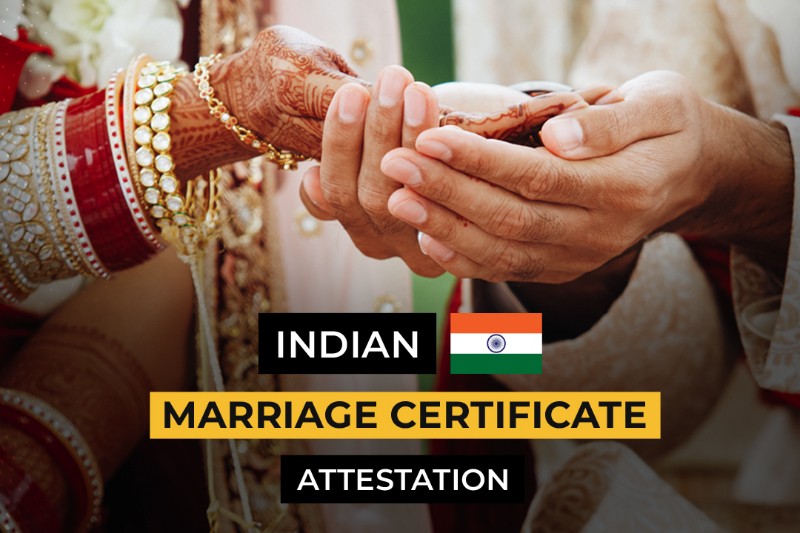Marriage Certificate Attestation in India: Everything You Need to Know
Securing a residence visa for your spouse involves attesting your marriage certificate in India. This process can seem daunting, but with the right guidance, it's entirely manageable. This blog will walk you through every step, ensuring a stress-free experience.
Why Attestation is Crucial:
In the UAE, attested documents are legally recognized. Attesting your marriage certificate proves its authenticity, making it a mandatory requirement for your spouse's residence visa application.
Step-by-Step Attestation Process:
- Notary Attestation: The first step is to get your marriage certificate attested by a local notary public. This verifies the document's legitimacy. Notary attestation in India is the initial step in authenticating your personal documents for international use. It involves a registered notary public verifying the originality of your document and affixing their official seal and signature. This process is essential for various personal documents like birth certificates, marriage certificates, educational certificates, and affidavits when you plan to use them abroad, especially for visa applications, employment, or further education.
- Home Department Attestation (State Level): Next, the certificate is attested by the Home Department or the Sub-Divisional Magistrate (SDM) of the state where the marriage took place. Home Department Attestation, a crucial step in the document authentication process for international use, takes place at the state level in India. This involves the verification and validation of your documents by the Home Department or a relevant state authority. The specific department and procedure may vary slightly depending on the state where your document was issued.
States where Home Department Attestation is required:
- Andhra Pradesh
- Assam
- Bihar
- Delhi
- Gujarat
- Haryana
- Himachal Pradesh
- Jammu & Kashmir
- Jharkhand
- Karnataka
- Kerala
- Madhya Pradesh
- Maharashtra
- Manipur
- Meghalaya
- Mizoram
- Nagaland
- Odisha
- Punjab
- Rajasthan
- Sikkim
- Tamil Nadu
- Telangana
- Tripura
- Uttar Pradesh
- Uttarakhand
- West Bengal
- Ministry of External Affairs (MEA) Attestation (Central Level): The MEA then attests the document to confirm its validity for international use.The Ministry of External Affairs (MEA) attestation is a crucial step in the document authentication process for international use. It validates the authenticity of your marriage certificate and other documents at the central government level. After obtaining state-level attestation, your documents are submitted to the MEA, which affixes its official seal and signature, confirming their legitimacy for use abroad. This attestation is essential for securing a UAE residence visa and other official processes in the UAE.
- UAE Embassy Attestation: The final step involves attestation by the UAE Embassy/Consulate in India. This confirms that the document meets UAE legal requirements.The UAE Embassy attestation is the final and crucial step in validating your marriage certificate for use in the UAE. By affixing their seal and signature, the UAE Embassy/Consulate in India officially confirms that your document complies with all UAE legal standards and regulations. This attestation ensures that your marriage certificate is recognized and accepted by all relevant authorities in the UAE, facilitating a smooth residence visa process for your spouse.
Conclusion:
Attesting your marriage certificate is a crucial step in securing a UAE residence visa for your spouse. By following this guide and planning, you'll navigate the process with ease. If you have any questions, don't hesitate to seek professional advice with Best Attesattaion UAE. We wish you a smooth transition to your new life in the UAE!
